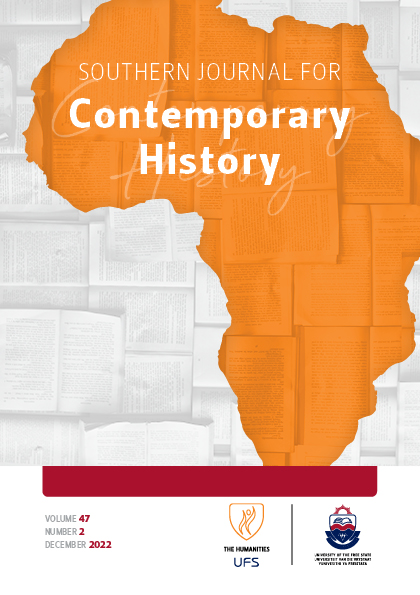Making and unmaking bonds: Humanitarianism, local politics and peacebuilding in Southeastern Zimbabwe, 1988 to 1992
DOI:
https://doi.org/10.38140/sjch.v47i2.5731Keywords:
Humanitarianism, Social cohesion, Host differentiation, Refugees, Peacebuilding, Narratives, Chilonga, ZimbabweAbstract
For a long time, perspectives of governments, civil societies and humanitarian organisations have overshadowed the voices of host communities during humanitarian emergencies. In a few instances where literature mentions host communities, they are often portrayed as homogenous groups that share similar views and attitudes towards those in need of assistance. In this article, I draw from host-refugee interactions to argue for the incorporation of local voices in civil society and humanitarianism studies and to illustrate the need to disaggregate host communities and pay attention to local politics during interventions. The influx of thousands of migrants from different countries and ethnic groups, changes the environment of the host community positively and negatively. Often, initial benevolence gives way to hostility as resource scarcities and insecurities arise. When this happens, it creates an environment of suspicion, blame, and stigma, which negatively impacts relations and cohesion between the two groups. Paying attention to local residents’ diverse perspectives during humanitarian emergencies may contribute to conflict prevention and peacebuilding.
Downloads
##submission.downloads##
Published
How to Cite
Issue
Section
License
Copyright (c) 2023 Kundai Manamere

This work is licensed under a Creative Commons Attribution 4.0 International License.




